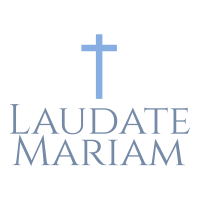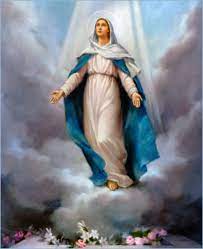The Feast of the Assumption of Mary is a cherished celebration in the Christian calendar, offering believers a profound glimpse into the heavenly promise that awaits. Rooted in history, theology, and ancient beliefs, this feast holds a special place in the hearts of faithful around the world.
In this article, we'll explore three essential aspects of the Feast of the Assumption, delving into its dogmatic declaration, historical origins, and the distinction between Mary's assumption and Jesus' ascension.
The Dogmatic Declaration and the Meaning of "Dogma"
The Feast of the Assumption finds its foundation in the Dogma of the Assumption, a declaration that solidified the belief held by Christians for centuries. But what exactly is a "dogma"? A "Catholic dogma" refers to a specific doctrine or belief that the Roman Catholic Church considers to be an essential and definitive truth of the faith. These dogmas are formally proclaimed by the Church's highest authority, typically by the Pope or an ecumenical council, and are considered binding for all Catholics to accept as a fundamental part of their belief system. Dogmas are seen as divinely revealed truths and are not subject to change or reinterpretation within Catholic doctrine. They serve as foundational principles that guide the faith and teachings of the Catholic Church.
On November 1, 1950, Pope Pius XII proclaimed the dogma in his apostolic constitution Munificentissimus Deus. In the heart of this proclamation lies the following text:
"We pronounce, declare, and define it to be a divinely revealed dogma: that the Immaculate Mother of God, the ever Virgin Mary, having completed the course of her earthly life, was assumed body and soul into heavenly glory."
This solemn declaration affirms Mary's unique place in salvation history, underscoring her sinlessness and her role as the Mother of God.
Ancient Belief in the Assumption
Long before the formal declaration of the dogma, early saints and theologians expressed a deep belief in the assumption of Mary. Early Christian writings and traditions contain references to Mary's heavenly assumption. St. John of Damascus, an influential theologian from the 8th century, wrote, "It was fitting… that the most holy-body of Mary, God-bearing body, receptacle of God, divinised, incorruptible, illuminated by divine grace and full glory… should be entrusted to the earth for a little while and raised up to heaven in glory, with her soul pleasing to God."
St. Gregory of Tours, a bishop and historian from the 6th century, also noted, "There is no doubt that the virgin Mother of God has both been raised to life and has been borne from this life to the heavenly throne." These beliefs echoed in the writings of early figures emphasize the significance of Mary's unique role in the Christian narrative.
Mary's Assumption vs. Jesus' Ascension
While both events involve the transition of a human body into the heavenly realm, there is a fundamental distinction between the assumption of Mary and the ascension of Jesus. Jesus' ascension, as described in the Gospels, was a divine act where Jesus, after His resurrection, ascended to heaven by His own power. In contrast, Mary's assumption is not recorded in the Gospels but is a belief held by the Church that her body and soul were taken up into heaven by the power of God. Jesus' ascension is a divine action, while Mary's assumption is a gift from God in recognition of her unique role as the Mother of God.
Conclusion
The Feast of the Assumption of Mary is a tapestry woven from history, theology, and faith. Its foundation in the dogma of the assumption, the ancient belief in Mary's heavenly journey, and the distinction between Mary's assumption and Jesus' ascension together shape the significance of this feast. As believers gather to commemorate this event, they are invited to reflect on the profound mysteries of faith and the hope that shines brightly through Mary's assumption, pointing toward the promise of eternal life.

